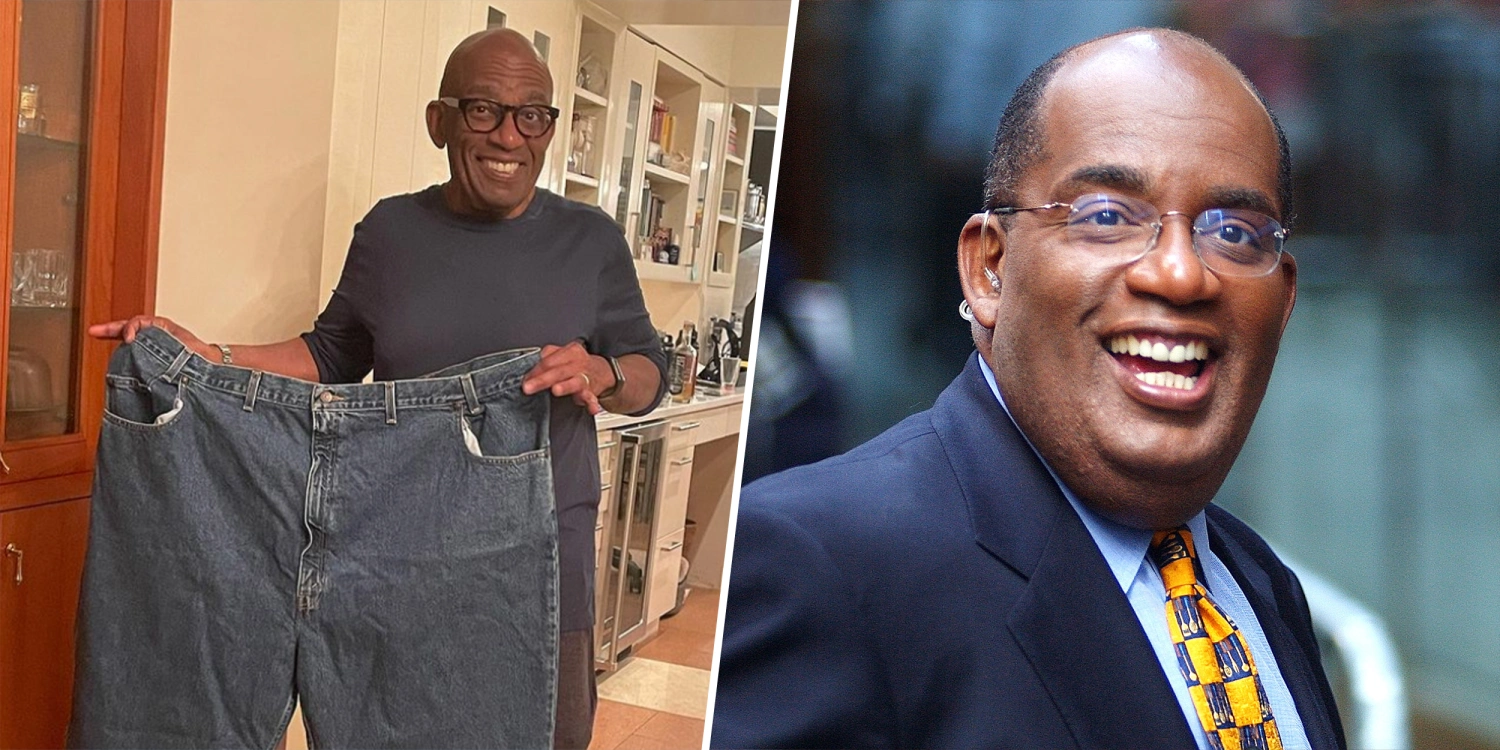Al Roker’s fat loss journey began with a heartfelt promise to his dying father in 1998. At over 340 pounds, he faced serious health warnings about heart disease, diabetes, and struggled with constant knee pain. This emotional commitment, combined with alarming medical realities, pushed him to undergo gastric bypass surgery and commit to permanent lifestyle changes. His transformation journey wasn’t just physical—it required mental resilience and a complete mindset shift that would eventually impact millions.
Key Takeaways
- A promise made to his dying father in 1998 served as a powerful emotional catalyst for Roker’s transformation.
- Serious health warnings from doctors about heart disease, stroke, and diabetes created urgency for change.
- Constant knee pain and high blood pressure at 340+ pounds made daily life increasingly difficult.
- Gastric bypass surgery became necessary when Roker recognized the need for permanent lifestyle intervention.
- Mental transformation was equally important, shifting from seeking quick fixes to committing to lasting health changes.
A Promise to His Dying Father: The Turning Point

While sitting beside his father’s hospital bed in 1998, Al Roker made a promise that would transform his life. As his father battled terminal cancer, Al committed to taking control of his weight—a struggle his father had witnessed throughout Al’s life.
In his father’s final days, Al Roker pledged to fight the battle that had defined their relationship for decades.
This deathbed promise wasn’t just a casual statement but an emotional commitment that would fuel Al’s determination for years to come.
You’ll find that the father’s influence extended far beyond this moment. Though Al had attempted weight loss many times before, this promise carried the weight of legacy and love.
Weighing over 340 pounds at the time, Al knew something needed to change. His father wouldn’t live to see the transformation, but the power of that promise created the turning point Al needed to begin his remarkable journey.
The 340-Pound Reality Check and Health Warnings
At 340 pounds, Al Roker faced a harsh reality that extended far beyond the number on his scale. His doctors didn’t mince words about the serious health implications of his weight.
You’ll recognize this as his 340-pound wakeup call—a moment when medical professionals warned him about his notably increased risks for heart disease, stroke, and type 2 diabetes.
Roker’s knees ached constantly, his blood pressure soared to dangerous levels, and simple tasks like climbing stairs left him winded.
His doctor’s blunt assessment: “You’re killing yourself slowly.” This stark medical reality, combined with his promise to his father, created the perfect storm for change.
The warnings weren’t just cautionary tales—they were immediate threats to his longevity, career, and ability to be present for his family.
Gastric Bypass Surgery: A Difficult but Necessary Decision

When facing gastric bypass surgery as Al Roker did, you’re balancing immediate health gains against potential surgical complications.
You’ll notice the transformation extends beyond shedding pounds to improving conditions like diabetes and heart disease.
Your decision, while deeply personal, involves weighing quality of life improvements against recovery challenges and lifestyle adjustments.
Health Versus Risk
Despite the potential benefits of dramatic weight loss, choosing gastric bypass surgery isn’t a decision anyone takes lightly. When Al Roker faced this choice, he’d to weigh significant health risks against his deteriorating condition at 340 pounds.
You’re fundamentally choosing between known obesity-related dangers and potential surgical complications. For Roker, diabetes, high blood pressure, and joint pain had already diminished his quality of life.
The procedure promised relief but required permanent lifestyle changes including strict dietary modifications and vitamin supplementation.
Doctors typically recommend this option only when conventional methods have failed and health concerns become critical. Roker’s decision reflected his understanding that sometimes you must accept short-term risk for long-term gain—a calculation that ultimately extended his life and restored his energy and mobility.
Beyond Physical Transformation
Al Roker’s gastric bypass surgery brought about changes that went far beyond numbers on a scale. When you examine his journey, you’ll see a profound emotional resilience that developed alongside his physical transformation. He faced his fears, embraced vulnerability, and rebuilt his relationship with food from the ground up.
The procedure wasn’t simply about weight loss—it catalyzed extensive lifestyle changes. Roker adopted new eating patterns, incorporated regular exercise, and confronted the psychological aspects of his previous habits.
This holistic approach helped him maintain his progress where previous attempts had failed. His story reminds us that bariatric surgery isn’t an easy way out but rather a tool that demands commitment, adaptation, and inner strength.
The true transformation happens in how you view yourself and your capacity for change.
The Mental Battle Behind Physical Transformation
You’ll discover the mental transformation behind Al Roker’s weight loss was just as challenging as his physical one.
His journey required confronting deeply personal insecurities while developing the mindset that sustainable change comes from within.
The psychological tipping point came when Roker shifted from viewing weight loss as a temporary fix to embracing it as a permanent lifestyle commitment.
Confronting Inner Demons
Behind every significant physical transformation lies a profound mental battle, one that Al Roker confronted head-on during his weight loss journey. You’ll discover that Roker’s success wasn’t just about diet changes or exercise routines, but about facing his inner demons with emotional resilience.
| Mental Challenge | Inner Demon | Overcoming Strategy |
| Self-doubt | “I can’t do this” | Daily affirmations |
| Comfort eating | Stress response | New coping mechanisms |
| Fear of failure | Past attempts | Building inner strength |
When you’re transforming your body, you’re also rewiring your mind. Roker had to dismantle decades of negative self-talk and destructive habits. He’s openly shared how confronting these demons required more courage than any physical challenge he faced. This mental conquest became the foundation that sustained his remarkable physical transformation.
Mindset Over Matter
Transforming the body begins in the mind—a reality Al Roker embraced fully on his weight loss journey.
When battling decades of ingrained eating habits, he discovered that willpower alone wouldn’t sustain lasting change. Instead, he needed a complete mindset shift.
You’ll notice Roker’s approach wasn’t about temporary dieting but establishing a new relationship with food and exercise. He developed mental resilience by focusing on daily victories rather than distant goals.
“I stopped seeing healthy choices as punishment,” Roker once shared, “and started recognizing them as gifts to my future self.”
This perspective transformation allowed him to persist through plateaus and setbacks. By reframing challenges as opportunities for growth, Roker built sustainable habits that withstood professional pressure, family obligations, and public scrutiny—proving that mental strength ultimately determines physical success.
Psychological Tipping Point
Although many dieters experience periodic motivation, true transformation requires identifying a psychological tipping point—that crystallizing moment when commitment becomes unshakable. For Roker, this moment came during a conversation with his dying father, who expressed concern about Al’s health. This powerful emotional trigger transformed his relationship with weight loss permanently.
You’ll notice that lasting change often emerges from these deeply personal psychological triggers—when the pain of remaining the same finally outweighs the discomfort of change.
The development of emotional resilience becomes essential as you navigate this journey. You’ll face setbacks, plateaus, and temptations, but your response to these challenges stems directly from that initial tipping point.
When your “why” becomes powerful enough, the “how” becomes merely a series of practical steps.
Managing Public Scrutiny While Navigating Weight Fluctuations
As Al Roker’s weight fluctuated over the decades, he faced relentless public scrutiny from viewers, tabloids, and social media commentators who felt entitled to weigh in on his appearance.
Living under the microscope of public perception meant every pound gained or lost became fodder for discussion.
You’ll notice that Roker developed strategies to manage this media scrutiny while maintaining his mental health. He learned to compartmentalize unsolicited opinions, focusing instead on his personal health goals rather than aesthetic expectations from others.
By openly discussing his struggles on air, he transformed what could have been a vulnerability into a strength, connecting with viewers facing similar challenges.
This transparency allowed him to reclaim the narrative around his body, demonstrating that weight management isn’t about perfection but persistence through inevitable setbacks.
Beyond Weight Loss: How Roker’s Journey Impacts His Advocacy Today
Al Roker’s personal struggles with weight have evolved into a powerful platform for health advocacy that extends far beyond his individual journey.
You’ll notice his approach isn’t just about numbers on a scale but about sustainable lifestyle changes that improve overall wellbeing.
Through his books, television segments, and social media presence, Roker transforms his experiences into relatable guidance for others facing similar challenges.
His advocacy impact stems from his transparency about setbacks and victories alike. When you hear him discuss his gastric bypass surgery or his commitment to daily exercise, you’re witnessing authentic advocacy born from lived experience.
Today, Roker uses his platform to champion accessible health information and normalize discussions about obesity as a medical condition rather than a personal failing.
Conclusion
Al Roker’s weight loss journey isn’t just about shedding pounds—it’s a promise kept, a battle won. You’ve seen how his father’s deathbed wish sparked a transformation that weathered health scares, surgery, and public scrutiny. Like a phoenix rising from the ashes, Roker turned personal struggle into powerful advocacy. His story reminds you that behind every physical change lies an even greater mental victory worth fighting for.